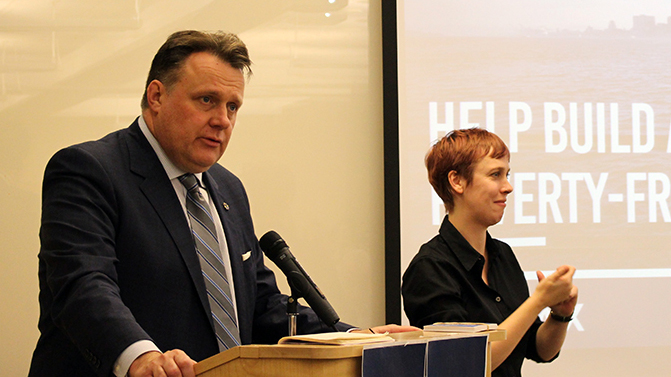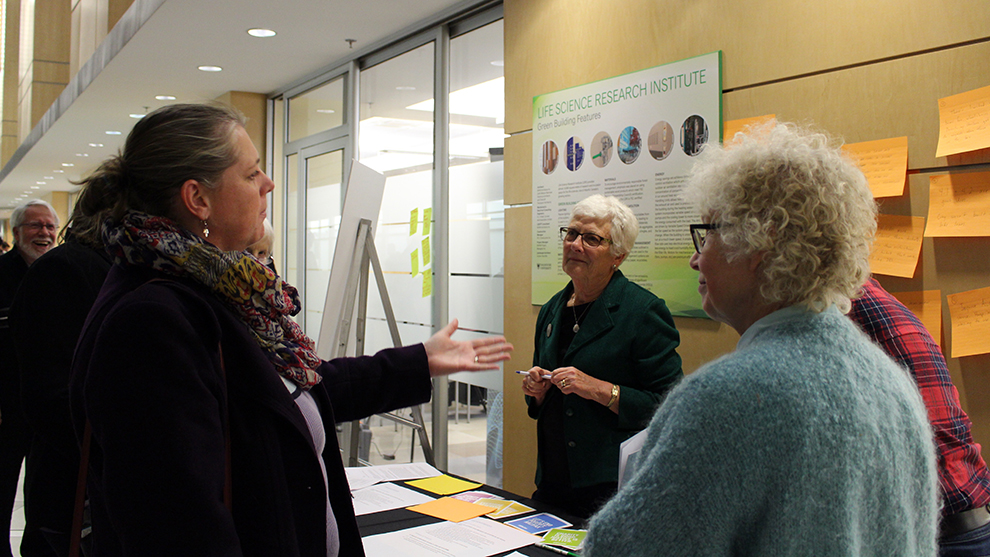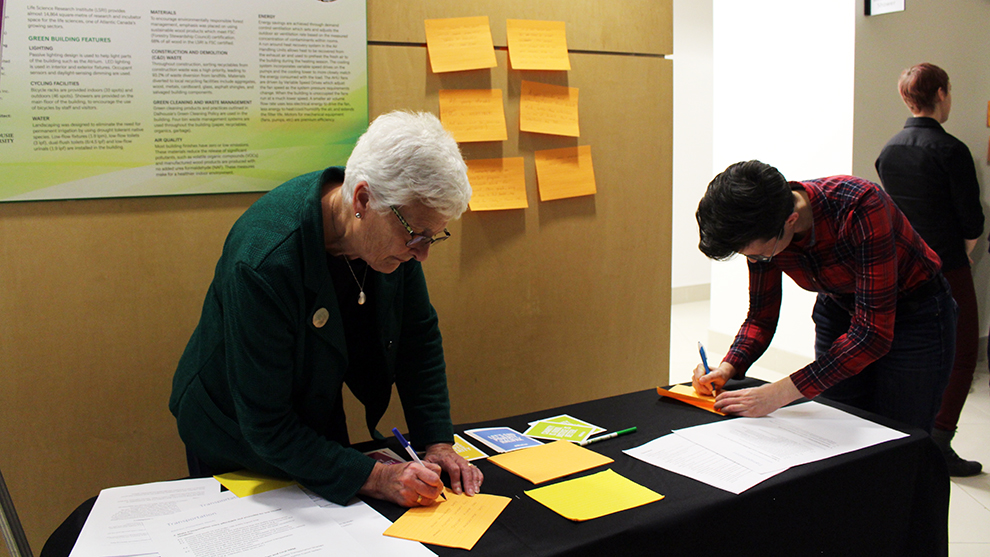Poverty
HRM, United Way give first look at poverty solutions
Low income transit passes, affordable housing upgrades among proposed ideas

caption

caption
Community members gave feedback on proposed ideas at the meeting.People crowded a boardroom in the Life Sciences Research Institute in Halifax Thursday night, standing in the back and in doorways, to hear how the municipality plans to fight poverty.
Halifax Regional Municipality and United Way Halifax presented new ideas as part of their poverty solutions strategy work that began in April. Those who gathered heard reports about community consultations done since that time and gave their own feedback.
The poverty solutions advisory committee’s solutions are broken into specific areas, including transportation, food security, homelessness and housing, service access and education. Ideas included the development of more flexible child care systems, a low income transit pass, the upgrade of 2,000 existing affordable housing units and the expansion of youth nutrition programs in schools.
Wayne MacNaughton, a 64-year-old who has experienced homelessness and now lives on a combination of income assistance and a Canadian pension, serves on the committee. Related stories
“A lot of these ideas that are coming out, a great many of them are ideas that are going to help to reduce the really negative impacts of poverty,” said MacNaughton in an interview.
He has volunteered with the United Way for 10 years and advocates for people living in poverty. “The idea is to draw on those with knowledge,” he said.
The solutions featured more immediate ideas, such as additional transportation options like the Dartmouth North community van, which helps get people to and from places like the food bank or the doctor’s office. Long-term strategies, like increasing access of the Halifax Transit system, are also a part of the committee’s plan.
Sara Napier, CEO of United Way Halifax and co-chair of the committee, told the room the committee has consulted with over 600 HRM residents since July on possible solutions. Over half of those 600 self-identified as living in poverty, she said.

caption
Mayor Mike Savage called on the municipality to do more to tackle poverty.According to United Way, one in eight people in HRM live in poverty. The development of this strategy is a part of the organization’s five-year plan to reduce poverty in the municipality.
Mayor Mike Savage, who co-chairs the committee with Napier, spoke before the solutions were presented. He told the audience the HRM would have to be creative and collaborative in its approach to reducing poverty because resources are limited.
“I’ve often said about social issues that the federal government might have the money, the provincial government might have the mandate, but the municipality has the people,” he said.
Savage also highlighted initiatives Halifax regional council is considering, including Fair Entry Halifax, which would allow residents to qualify once for municipally subsidized low income programs.
New ideas collected
After the presentation, people clustered around tables in the atrium to hear specific information and give input. Facilitators at each table wrote new ideas on large sticky notes and then stuck them to the walls behind each station.
One sticky note suggested a program to train young people to provide support to seniors in their neighbourhoods. Another sticky note said there is no bus in Spryfield that runs to the food bank. A third note asked for more employer education on disabilities.

caption
Carole Jones, board chair of the Old School Community Gathering Place, recorded new ideas.For MacNaughton, solutions to poverty must work to alleviate “the enormous amount of stress” that comes with living in poverty.
“Things like whether or not to treat yourself to something that other people might take for granted become big, major decisions — earth-shattering decisions,” he said.
MacNaughton said that the work of creating these solutions has allowed HRM and United Way staff to understand the ways in which they can be doing more to help those living in poverty. He acknowledged that many of the solutions presented by the committee will not create instant change.
“I think the impact is going to be probably in the medium to long term more than anything else,” he said.
Regional council is expected to review a full report from the committee next month, and solutions could be implemented as early as next year, said Napier.

